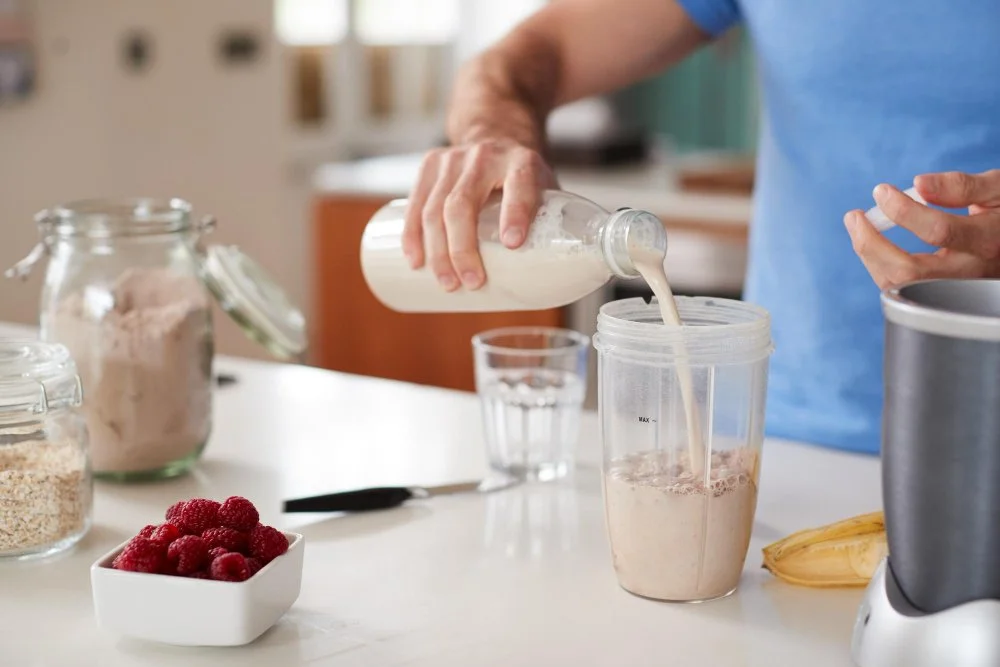What Happens If You Replace Meals with Protein Shakes and Bars?
In today’s fast-paced world, many people turn to protein shakes and bars as a convenient meal replacement option.
Whether you’re trying to lose weight, build muscle, or just save time, these products seem like an easy fix.
But is it healthy to rely solely on protein shakes and bars instead of traditional meals like rice, vegetables, and whole foods?
The Pros of Protein Shakes and Bars as Meal Replacements
Protein shakes and bars offer several benefits. They are:
Convenient and quick: Perfect for busy schedules or when you’re on the go.
High in protein: Helps with muscle repair and growth.
Calorie-controlled: Many are designed to provide a specific calorie amount, which can aid weight management.
Portable: Easy to carry anywhere, unlike some whole foods.
The Cons and Risks of Relying Only on Protein Products
Despite their advantages, replacing all your meals with protein shakes and bars can have drawbacks:
Lack of dietary fiber: Many protein shakes and bars don’t provide enough fiber, which is important for digestion and gut health.
Missing essential nutrients: Whole foods like vegetables, fruits, and grains provide vitamins, minerals, antioxidants, and healthy fats that protein products often lack.
Potential nutrient imbalance: Over time, relying on protein products may cause deficiencies or imbalances that affect energy, mood, and immunity.
Monotony and sustainability: Eating only shakes and bars can get boring, which may lead to overeating or abandoning your diet plan.
Possible digestive issues: Some people may experience bloating or discomfort due to artificial sweeteners or additives in protein products.
How to Use Protein Shakes and Bars Wisely
To enjoy the benefits without the downsides:
Use them as supplements, not full replacements. Combine shakes and bars with balanced meals rich in whole foods.
Choose nutrient-dense products. Look for options with added fiber, vitamins, and minerals.
Listen to your body. If you notice fatigue, digestive issues, or mood changes, reassess your diet.
Consult a nutritionist or healthcare provider. Personalized advice can help you meet your health goals safely.
Protein shakes and bars can be a valuable part of a healthy diet when used appropriately. However, completely replacing meals for a prolonged period of time with these products is generally not recommended for long-term health. A varied diet with whole foods remains essential for optimal nutrition, energy, and well-being.
Disclaimer: The information provided in this blog is for educational purposes only and is not intended as medical advice. For a professional diagnosis and treatment plan, please consult with your doctor or our specialists at Premier Pain & Rehab Center, PC. Read our full Medical Disclaimer here.
© 2025 Premier Pain & Rehab Center, PC. All rights reserved.







